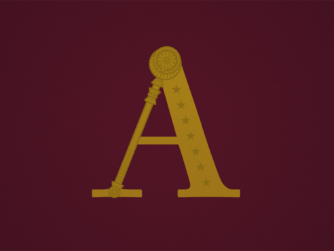Black Riders attack the inn during the night, so Strider opts for an early check-out to get out of Bree quickly. They soon discover that Merry’s ponies are missing, delaying their departure; but Barliman, uh, ponies up the money to compensate their losses and buys them one underfed beast of burden for the road. Bill Ferny (now twelve silver pennies richer) sees the heroes off on their way out of town, and Sam repays his kind gesture with an apple. Also: more listener questions on the Rings of Power, and word-nerdery on the itchiest place name in Middle-earth.
Recommended Reading:
Tolkien, J. R. R. (Christopher Tolkien, ed.) The Silmarillion (Mariner Books, paperback)
Carpenter, Humphrey, ed. The Letters of J.R.R. Tolkien (Mariner Books, paperback)



Just adding to the list of possible cognates for “midge”: in Russian (the non-English language I am most familiar with), the word for “fly” is “mukha”; I’m not certain whether it might be a Germanic borrowing (c.f., German “Mucke”), or a separate descendant from the Proto-Indo-European form.
I want to thank you guys for calling attention to Tolkien’s landscape descriptions; when I reread passages from the books now, I am paying more attention and trying harder to actually visualize the landscapes themselves, especially from the viewpoint of the characters (which is very different from the viewpoint of a map).
It certainly seems like another cognate. For what it’s worth, the Wiktionary entry for ‘midge’ in English does list the Russian word as from the same Indo-European root, but it’s not really clear there whether it’s from a native Proto-Slavic word or a Germanic borrowing. Either way, it’s another in the family! Thanks, Glenn.
I love how Tolkien doesn’t make you wonder about what happened with the ponies and give them all a happy ending. It feels like he cares about the animals and dedicate them thought and care in the story.